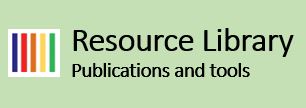06/05/2020 - Act now to build back the bond between people and nature

Photo credits: Visoot Uthairam (Flickr)
This article is written Jane Madgewick, CEO Wetlands International/ Steering Group member of Partners for Resilience. It was published earlier on Wetlands International's website, and on the website of the Global Centre on Adaptation.
The response to the devastating COVID-19 pandemic demands swift and focused humanitarian action. But it is also critical to define the root causes and to start to address these, to improve future resilience. One recognised driver of rising human health risks is the dramatic decline in biodiversity and the collapse of whole ecosystems. This is a ‘death by a thousand cuts’ impact played out over the last decades, which is now showing planetary consequences. By continuing to clear, drain and degrade forests and wetlands, to pollute the ocean and perpetuate climate change, human health hazards have increased and people have become more exposed to those hazards, including, but not limited to, emerging infectious diseases, which pass from animals to people.
Scientific research shows clearly that climate, biodiversity and human health are all interlinked. The health of ecosystems and human health are effectively in lockstep. So, we cannot get far in solving one without the other. Improving human health demands not only fighting to control the impact of individual infectious diseases, but also addressing socio-economic and environmental factors alongside. By connecting the science of Health, Ecology and Sustainability, more holistic approaches can be developed and implemented. These are conclusions already recognised and extensively documented by the leading global institutions like the World Health Organisation (WHO).
So, while humanitarian actions are currently ongoing, it is vital to start and maintain interventions which will enable environmental recovery early enough to assure the move towards a safe and healthy world. Focus is needed on the world’s poorest people, who are suffering the most in terms of sickness, increasing exposure to health risks, climate change and destruction of their local environment, which limits their chances for development.
In this increasingly telecoupled world, building on the positive connections between health, nature and development will require breaking out of sectoral silos. Many of the models and methods for this are already available, including those of “integrated risk management”, which connects sectors to combine expertise and interventions at all scales, consistent with the ‘One World, One Health’ approach.
The COVID-19 pandemic should be a wake-up call. There are choices which can and should be made now, in this time of crisis, that would build future resilience for people and nature, together. Rather than putting the response to the ongoing environmental and climate crises to the side – and loosening environmental safeguards in favour of boosting the economy, now is the time to plan and develop along pathways that promote both social and ecological healing. By safeguarding and restoring ecosystems, such as wetlands, we can improve human health and well-being while bringing many other benefits like reducing GHG emissions, enhancing biodiversity and quality of life in cities.
And how does Wetlands International play a role? Among ecosystems, wetlands are a barometer of this relationship between people and nature. The current reading is not encouraging, since we are losing them the fastest – and the impacts of this loss on biodiversity and human well-being are the most severe. And yet there is optimism that the needle could shift the other way: safeguarding and restoring wetlands are increasingly looked to as the premier nature-based solution to rebuild society’s resilience, securing clean water supplies, reducing the impact of floods and droughts, enabling food security and buffering people against the ravages of climate change.
Around the world, Wetlands International has a history of working with health specialists and researchers to help build an understanding of the connections between changes in wetland functioning and the incidence and severity of disease affecting people: including water supplies, health and sanitation, waterborne diseases, haze from burning peatlands and avian influenza. Our programmes, which aim to recover wetlands in a healthy condition, are simultaneously geared to improve human health and well-being, as well as their economic livelihoods.
We are ready to play our part now in helping people and nature forge a closer union, and so create a safer world.
Jane Madgwick
Chief Executive Officer, Wetlands International/ Steering Group member Partners for Resilience.





